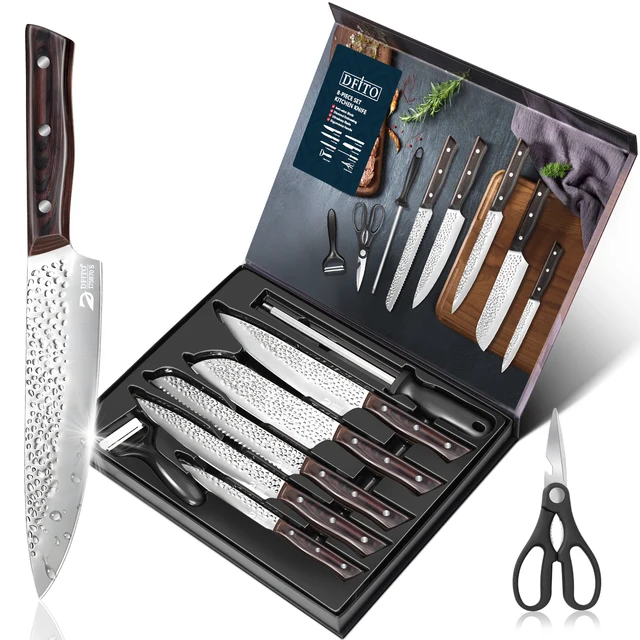The electric juicer has revolutionized the way we enjoy fresh juice. No longer confined to manual juicers and their laborious process, we can now extract flavorful and nutrient-rich juice with ease and efficiency. But with so many options available, choosing the right electric juicer can seem daunting. This comprehensive guide will delve into the world of electric juicers, exploring their types, benefits, features, and considerations for making the right choice for your needs.
 Understanding the Different Types of Electric Juicers
Understanding the Different Types of Electric Juicers
Electric juicers come in a variety of types, each with its unique features and advantages.
1. Centrifugal Juicers:
- How they work: Centrifugal juicers utilize centrifugal force to extract juice. The fruits and vegetables are placed into a feeding tube and spun at high speed against a mesh screen. The juice is forced through the screen, leaving the pulp behind.
- Advantages:
- Affordable: Centrifugal juicers are generally the most affordable option.
- Fast and efficient: They can extract juice quickly, making them ideal for larger quantities.
- Easy to use: They have a simple design and are easy to operate.
- Disadvantages:
- Less efficient juice extraction: They tend to leave more pulp in the juice, resulting in a lower yield.
- Produce foam: The high speed can create foam in the juice, which can affect its flavor and texture.
- Generate more noise: They are typically louder than other types of juicers.
2. Masticating Juicers (Slow Juicers):
- How they work: Masticating juicers, also known as slow juicers, use a rotating auger to crush and press the fruits and vegetables. They operate at a slower speed, which creates less heat and oxidation.
- Advantages:
- Higher juice yield: They extract more juice from the produce, resulting in a higher yield.
- Less foam and oxidation: The slow speed reduces foam formation and minimizes oxidation, preserving the nutrients and flavor of the juice.
- Quiet operation: They are quieter than centrifugal juicers.
- Can juice leafy greens and herbs: Their powerful augers can handle tougher produce.
- Disadvantages:
- More expensive: Masticating juicers are generally more expensive than centrifugal juicers.
- Slower juice extraction: The slower speed means it takes longer to extract juice.
- Can be more difficult to clean: They have more parts than centrifugal juicers.
3. Citrus Juicers:
- How they work: Citrus juicers are designed specifically for extracting juice from citrus fruits like oranges, grapefruits, and lemons. They typically have a cone-shaped reamer that rotates to extract juice from the fruit.
- Advantages:
- Efficient for citrus fruits: They are highly effective at extracting juice from citrus fruits.
- Easy to use and clean: They are simple to operate and have few parts to clean.
- Affordable: They are relatively inexpensive.
- Disadvantages:
- Limited functionality: They are only suitable for juicing citrus fruits.
 4. Twin Gear Juicers:
4. Twin Gear Juicers:
- How they work: Twin gear juicers use two interlocking gears to crush and extract juice from the produce. They are considered the most powerful type of juicer, capable of handling even tough produce like wheatgrass and leafy greens.
- Advantages:
- Highest juice yield: They extract almost all the juice from the produce.
- Minimal oxidation: They operate at a low speed, minimizing oxidation and preserving nutrients.
- Can juice almost anything: They are versatile enough to juice a wide variety of fruits, vegetables, and herbs.
- Disadvantages:
- Very expensive: They are the most expensive type of juicer.
- Complex to clean: They have a lot of parts, which can be time-consuming to clean.
Understanding the Benefits of Electric Juicers
Electric juicers offer a myriad of benefits, making them a worthwhile investment for health-conscious individuals.
1. Nutrient-Rich Juice:
Electric juicers efficiently extract juice, preserving the essential nutrients like vitamins, minerals, and antioxidants present in fruits and vegetables. This allows you to enjoy a concentrated dose of nutrients in a convenient and delicious way.
2. Digestive Health:
Juicing fruits and vegetables can improve digestive health. The fiber present in these foods helps regulate bowel movements, preventing constipation and promoting a healthy gut microbiome.
3. Weight Management:
Freshly squeezed juice is a calorie-controlled and nutrient-rich alternative to sugary drinks. It can help you stay hydrated and satiated, supporting weight management efforts.
4. Increased Energy Levels:
The vitamins and minerals in juice provide essential nutrients that can boost energy levels.
5. Convenient and Time-Saving:
Electric juicers simplify the juicing process, saving time and effort compared to manual methods. They are also convenient for preparing juice in bulk, making it easy to enjoy fresh juice throughout the week.
 Key Features to Look for in an Electric Juicer
Key Features to Look for in an Electric Juicer
With so many options available, choosing the right electric juicer can feel overwhelming. Consider these key features when making your selection:
1. Motor Power:
The motor power determines the juicer’s efficiency and ability to handle different types of produce. A powerful motor is crucial for juicing tougher fruits and vegetables.
2. Pulp Ejection System:
Choose a juicer with a convenient pulp ejection system to make cleaning easier. Some juicers have a built-in pulp container, while others require a separate container.
3. Juice Capacity:
Consider the juice capacity based on your needs. Choose a juicer with a large enough container if you plan to juice for multiple people or in bulk.
4. Cleaning Ease:
Look for a juicer with removable parts that are dishwasher-safe for easy cleaning.
5. Safety Features:
Ensure the juicer has safety features like an overload protection mechanism and a safety switch to prevent accidents.
6. Noise Level:
If noise is a concern, opt for a quieter juicer, especially if you plan to use it frequently.
7. Warranty:
Check the warranty offered by the manufacturer to ensure you have peace of mind with your purchase.
Making the Right Choice for Your Needs
The best electric juicer for you depends on your individual needs and preferences.
1. Budget:
Centrifugal juicers are the most affordable option, while masticating juicers and twin gear juicers are more expensive. Consider your budget and the features that are important to you.
2. Usage Frequency:
If you plan to juice frequently, invest in a higher-quality juicer with a powerful motor and a convenient pulp ejection system.
3. Juice Preferences:
If you prefer thick and pulpy juice, a centrifugal juicer might be a better choice. For clear and nutrient-rich juice, consider a masticating juicer or twin gear juicer.
4. Produce Type:
If you plan to juice leafy greens and herbs, opt for a masticating juicer or twin gear juicer, which are designed to handle tough produce.
5. Space Constraints:
Consider the size and storage space available in your kitchen before making a purchase.
 Some tips on how to choose an electric juicer:
Some tips on how to choose an electric juicer:
Here are some tips on how to choose an electric juicer:
1. Consider the type of juicer:
- Centrifugal juicers: These are the most common type and are relatively inexpensive. They work by spinning the fruit or vegetables at high speed, which separates the juice from the pulp. Centrifugal juicers are good for making juice quickly, but they can generate more heat and foam, which can affect the taste and nutritional value of the juice.
- Masticating juicers: These juicers use a slower, chewing action to extract juice. They are better at extracting juice from leafy greens and harder vegetables, and they produce less foam and heat. Masticating juicers are generally more expensive than centrifugal juicers, and they can be slower to use.
- Triturating juicers: These are similar to masticating juicers, but they use a different type of mechanism to extract juice. Triturating juicers are generally the most expensive, but they are also the most efficient and produce the highest quality juice.
2. Think about your needs:
- How much juice do you want to make? If you only need juice for yourself or a small family, a smaller juicer will be sufficient. If you want to make juice for a larger group, you’ll need a juicer with a larger capacity.
- What types of fruits and vegetables do you want to juice? Some juicers are better at juicing certain types of produce. For example, centrifugal juicers are good for soft fruits and vegetables, while masticating juicers are better for leafy greens and hard vegetables.
- How often do you plan to use the juicer? If you only plan to use the juicer occasionally, a cheaper model will be fine. If you plan to use it frequently, you’ll want to invest in a higher-quality juicer.
3. Look for features:
- Easy to clean: A juicer that is easy to clean will save you time and frustration. Look for a juicer with removable parts that can be washed in the dishwasher.
- Durable construction: A well-made juicer should last for years. Look for a juicer made from high-quality materials, such as stainless steel.
- Quiet operation: Some juicers can be quite loud, especially centrifugal juicers. If you’re concerned about noise, look for a juicer with a quiet motor.
- Safety features: Look for a juicer with safety features such as a safety switch that prevents the motor from running when the lid is open.
4. Read reviews:
Before you buy a juicer, be sure to read reviews from other users. This will help you get a better idea of the pros and cons of different models.
5. Set a budget:
Juicers can range in price from a few hundred dollars to several thousand dollars. Set a budget before you start shopping so you don’t overspend.
By following these tips, you can choose an electric juicer that meets your needs and budget.
 Conclusion
Conclusion
Electric juicers have become indispensable kitchen appliances for health-conscious individuals seeking a convenient and efficient way to enjoy fresh juice. By understanding the different types, benefits, features, and considerations, you can choose the perfect electric juicer for your needs. Whether you’re looking for an affordable option for occasional use or a high-performance juicer for daily use, there is an electric juicer out there that can help you unlock the benefits of fresh juice and elevate your kitchen experience.



